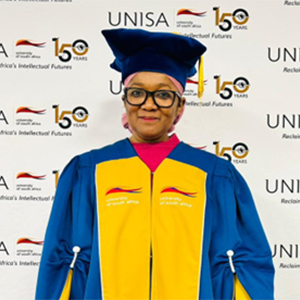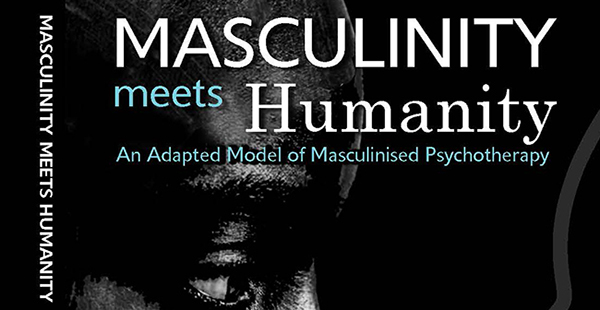News & Media
Enhancing the emotional engagement of boys and men

Dr Shahieda Jansen
We live in a society (and world) grappling for answers to different forms of male violence, against each other and against women and children, and what is called toxic masculinity. Dr Shahieda Jansen, a clinical psychologist, says psychotherapists can play a massive role in working towards psychologically healthy masculinities.
It was in her role as clinical psychologist and manager of the University of the Western Cape’s Student Counselling Centre where Jansen began to develop an alternative to the orthodoxy of individual psychotherapy.
She introduced group therapy and started to experiment with ideas of social personhood, the "Umoya (socio-spiritual) self", which birthed the men’s group. These culturally infused psychotherapy groups enhance the emotional engagement of boys and men.
"My research interest is male-focused psychotherapy with boys and men. Facilitating men’s groups has remained my all-consuming passion for the last 15 years," she reflects.
She says her approach to psychotherapy allows men to address their mental health concerns in a way that is consistent with their meanings of manhood and assists them to help others along the same path.
Unisa Press published her book titled Masculinity meets humanity: An adapted model of masculinised psychotherapy in 2022. "The book," says Jansen, "describes the masculinised psychotherapy model that emerged in response to efforts to make the psychotherapeutic process more accessible to young men who sought psychotherapeutic help at a university student counselling centre."
But who is Dr Shahieda Jansen?
A first-generation university student
Jansen is the Deputy Director of Academic and ICT Support Services at Unisa’s Western Cape Region and a Professional Research Group (PRG) researcher.
Although she did not pass matric with exemption, she was offered an age exemption at Unisa when she turned 23. Explains Jansen: "As a first-generation student, I studied to become a nurse while generating an income to support my siblings." Today she is a qualified registered nurse, midwife and psychiatric nursing sister. She obtained her undergraduate and postgraduate degrees in psychology at Unisa.
When she was accepted for a master’s degree in psychology at Unisa, it meant full-time studies, so she gave up her job and moved to Pretoria. A few years later she moved back to Cape Town, as a qualified psychologist. "I first worked as a researcher for the University of Cape Town, but later ended up at the University of the Western Cape."
Then, when she was looking for a supervisor for her masculinity-focused PhD thesis, it was Unisa’s Prof Kopano Ratele (who has since left for Stellenbosch University), who was willing to supervise her. "So, I was back with Unisa after a long break," she chuckles.
Jansen completed her PhD in 2015 and accepted a position at Unisa as a deputy director in 2016.
"So, you can see that I went full circle, from first-year student to senior management staff with Unisa!" she says with a smile.
Despite her demanding administrative role, Jansen has been producing research outputs through the support services of the Professional Research Committee, a research support body for Unisa professional staff.
As a Professional Research Group (PRG) researcher, Jansen had this to say about the Professional Research Committee (PRC) support services:
What are the benefits of being a PRG researcher?
It is really isolating trying to publish if you are not an academic. I am a late bloomer, only getting into the publishing game now. To think that this Cape Flats girl’s book is on Amazon, Nkhosi yam! I am grateful!
The Professional Research Committee (PRC) is an important support system. They put me in touch with others, who like me, are trying to publish outside formal academic spaces.
PRC staff are friendly and helpful. I am a social learner, so people are important; just to be able to pick up the phone and call someone is great. I previously served as a Research Ethics Workgroup member, which helped me to understand the technical aspects of the process of a research ethics application. I am so grateful to the PRC.
How did PRC’s support services enable you to achieve your research goals?
It is quite amazing that despite not being an academic, I am entitled to almost the same research benefits as academics. I recently applied for research development leave through PRC, which was approved. This was my first research development leave, and I am managing to accomplish a lot during this period.
Just to give you an example, my one manuscript had been rejected twice, by different journals. I just submitted it for the third time, to a third journal. That requires a lot of work and time, but through the research development leave I managed to do it.
I can conclude that the PRC is serious about promoting publications and making sure that Unisa can reach its research and publications targets.
* By Mpho Moloele, PR and Communications, Department of Research, Innovation and Commercialisation
Publish date: 2023/12/19


 Unisa co-hosts G20 community outreach in the Eastern Cape
Unisa co-hosts G20 community outreach in the Eastern Cape
 Unisans gain membership of prestigious science academies
Unisans gain membership of prestigious science academies
 Advocating for disability transformation through servant leadership
Advocating for disability transformation through servant leadership
 Unisa Press continues to illuminate the publishing space
Unisa Press continues to illuminate the publishing space